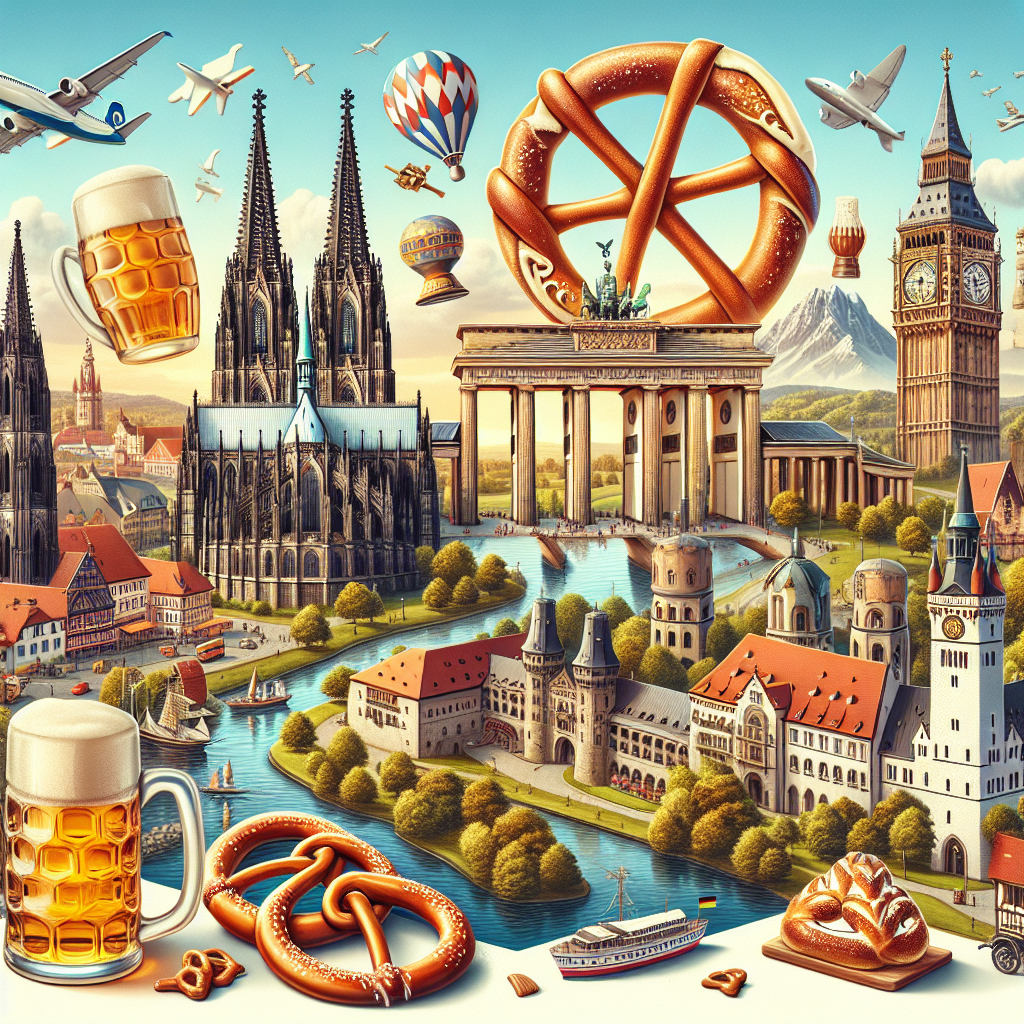Cities in Germany: Diverse, historical, and livable

Cities in Germany - Exciting and Informative City Profiles
The largest cities in Germany: Here, life pulses.
These cities have the most inhabitants
| City | Population (approx.) | Highlights |
|---|---|---|
| Berlin | 3.7 million |
|
| Hamburg | 1.9 million |
|
| Munich | 1.6 million |
|
| Cologne | 1.1 million |
|
| Frankfurt am Main | 770,000 |
|
| Stuttgart | 640,000 |
|
| Düsseldorf | 620,000 |
|
The most popular cities in Germany: Here is where tourists flock to.
These cities are highly popular among visitors
- Berlin – The historic center of Germany with landmarks such as the Reichstag and the Berlin Wall.
- Hamburg – The city by the water with the Elbphilharmonie, the fish market, and the Speicherstadt.
- Munich – Home of Oktoberfest, the English Garden, and the impressive Frauenkirche.
- Heidelberg – A romantic old town with the famous castle ruins and the oldest university in Germany.
- Dresden – The Baroque beauty with the Semperoper and the Frauenkirche.
- Rothenburg ob der Tauber – A medieval backdrop, half-timbered houses, and world-famous Christmas markets.
- Cologne – The city on the Rhine with the world-famous Cologne Cathedral and a lively party scene.
UNESCO World Heritage Cities: Experience Culture and History Up Close
Germany has a total of 52 UNESCO World Heritage Sites, including some complete cities that are protected due to their historical significance. Here, you can experience history at every turn.
Cities with UNESCO World Heritage Status
| City | World Heritage Site | Special Feature |
|---|---|---|
| Bamberg | Old Town of Bamberg |
|
| Regensburg | Old Town with Stadtamhof |
|
| Quedlinburg | Old Town |
|
| Weimar | Classical Weimar |
|
| Lübeck | Old Town with Holstentor |
|
| Stralsund & Wismar | Historic Old Towns |
|
Special Highlights of These Cities
- Bamberg feels like a time travel back to the Middle Ages. Particularly famous is the "Old Town Hall," which stands on an island in the midst of the Regnitz.
- Lübeck was once the center of the Hanseatic League and impresses with the enormous St. Mary's Church and the famous Holstentor.
- Weimar is the epicenter of German classicism – Goethe and Schiller lived here, and the Bauhaus began.
UNESCO cities are ideal for anyone who loves history and architecture. Often, they are smaller towns that are particularly well-preserved and exude a unique charm.
The smallest cities in Germany: Small, but with character
Not only the big metropolises are exciting – even the smallest towns in Germany have a lot to offer. They are often tranquil, but usually have a long history or a special tradition.
These towns are among the smallest in Germany
| Town | Population (approx.) | Special Features |
|---|---|---|
| Arnis (Schleswig-Holstein) | 300 |
|
| Riedenburg (Bavaria) | 5,500 |
|
| Lichtenstein (Saxony) | 12,000 |
|
| Bad Sooden-Allendorf (Hesse) | 8,000 |
|
| Meersburg (Baden-Württemberg) | 5,800 |
|
The craziest cities in Germany: Unusual and unique
Some cities stand out due to their extraordinary history or unique characteristics. Wuppertal is not only known for its steep hills but also for the suspended monorail that has been gliding over the city for over 120 years.
Göttingen, on the other hand, has an unusual tradition: anyone receiving their doctoral certificate here must kiss the Gänseliesel statue in the marketplace – a ritual that has been maintained for decades. In Nördlingen, you will find the only city in Germany that is completely located within a meteorite crater, while the island city of Lindau, directly on Lake Constance, hosts one of the most picturesque old towns in the country.
Germany's cities are as diverse as the country itself.
Whether you are looking for the hustle and bustle of a big city, the charm of a UNESCO site, or the coziness of a small town – Germany has the perfect city for everyone. While Berlin and Hamburg attract with their cultural diversity, places like Bamberg or Lübeck impress with their historic old towns. And those seeking tranquility will find it in charming small towns like Meersburg or Arnis. Germany is a country full of contrasts – and that is exactly what makes its cities so exciting!


